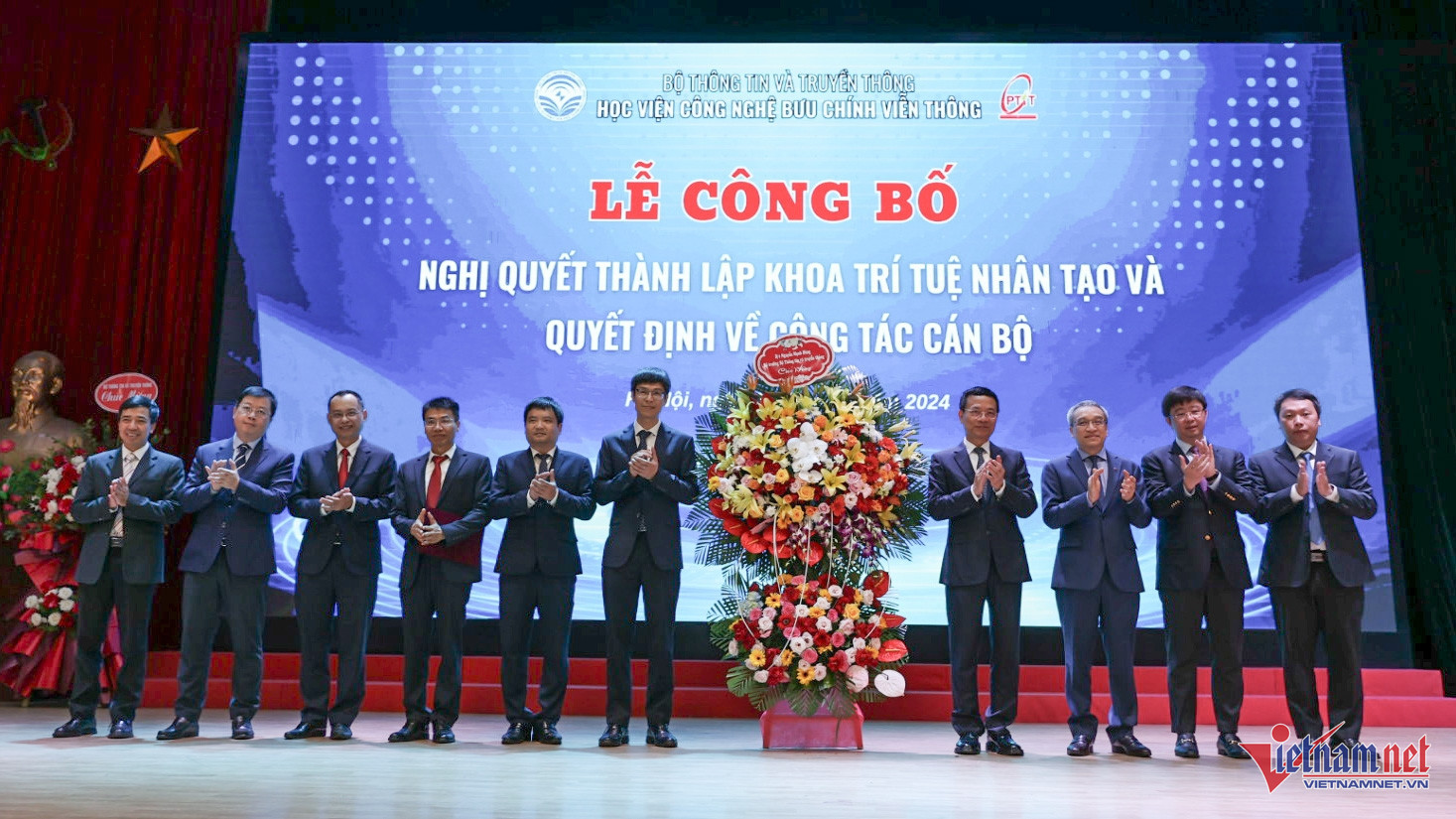This milestone event underscores the country's commitment to advancing AI education and research, with the new faculty set to play a leading role in training and developing AI talent to meet the growing demand for expertise in this field.

On August 28, the Posts and Telecommunications Institute of Technology (PTIT) announced the establishment of Vietnam's first Faculty of Artificial Intelligence (AI) at its Hanoi campus.
The event was attended by Minister of Information and Communications Nguyen Manh Hung, along with other high-ranking officials from the ministry.
The AI Faculty was established by optimizing existing resources within the institute to prioritize this cutting-edge field.
The faculty will initially consist of seven members, led by Associate Professor Pham Van Cuong, who will also head the Applied AI Department, alongside six lecturers transferred from three other specialized faculties.
The newly established AI Faculty at PTIT aims to educate top experts in AI and to become a hub for research and the development of advanced technological solutions.
These efforts are in response to the rapidly growing demand for AI professionals in Vietnam. The faculty will also support AI training across other departments within the institute.
"The vision for the AI Faculty over the next 10 years is to become the leading AI training institution in Vietnam, excelling in both research and education. We aim to have PTIT ranked among the top 400-450 universities worldwide in AI research by 2035," stated Professor Tu Minh Phuong, Chairman of the institute’s Council.
During the event, Minister Nguyen Manh Hung emphasized the importance of a distinctive and excellent philosophy in AI education, which would attract outstanding knowledge, teachers, and students.
He suggested that the faculty should focus on capturing the essence and expertise of top educators and specialists rather than merely their physical presence.
Reiterating the significance of AI, Minister Hung stressed the need for PTIT’s AI curriculum to be continuously updated and aligned with international standards. He highlighted the necessity for Vietnam's AI programs to focus on practical applications, ensuring the country leads in AI implementation and has sufficient AI talent to integrate AI solutions into every aspect of Vietnamese society.
"PTIT should aim to be among the top 100 universities globally in applied AI education," Minister Hung urged.
The minister also called for strong collaboration between universities and businesses, both domestically and internationally, to enhance AI education. The AI Faculty should offer comprehensive training across undergraduate, graduate, and doctoral levels while also providing reskilling opportunities for professionals in electronics, telecommunications, and IT to transition into AI engineering roles, meeting the urgent need for AI talent in the short term.
Minister Hung also highlighted the importance of ethical principles in AI management and development, such as ensuring transparency, respecting ethical values and human rights, and protecting privacy. These principles are essential to ensure AI serves humanity responsibly.
During the event, PTIT signed agreements with FPT Smart Cloud and Ericsson to collaborate on AI research, education, and workforce development.
Van Anh